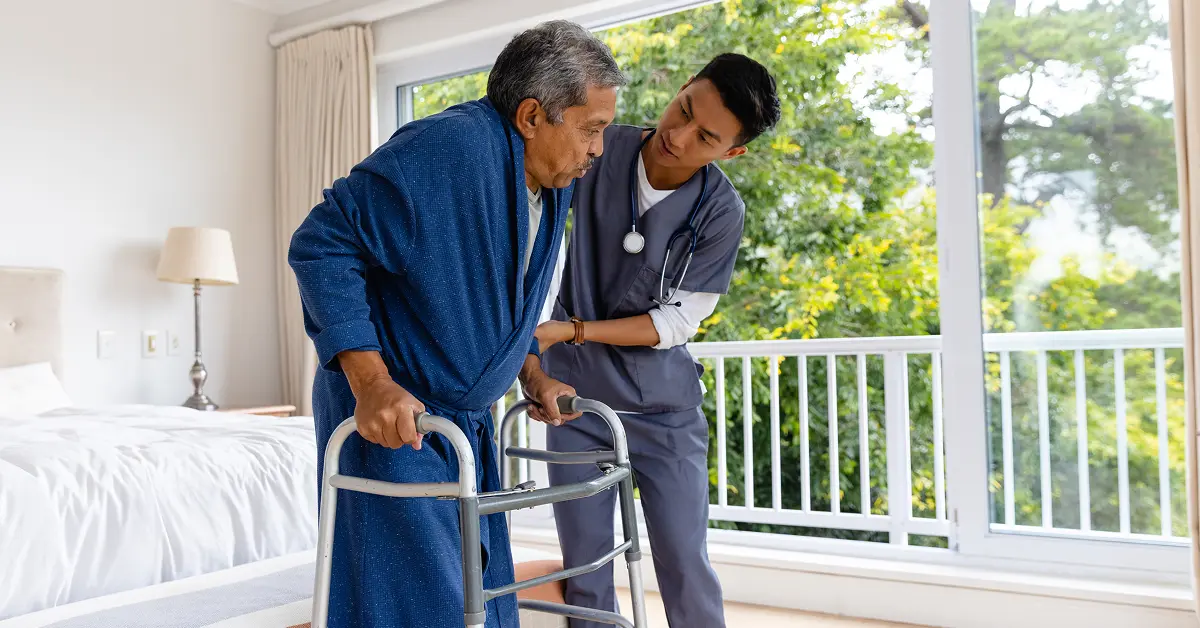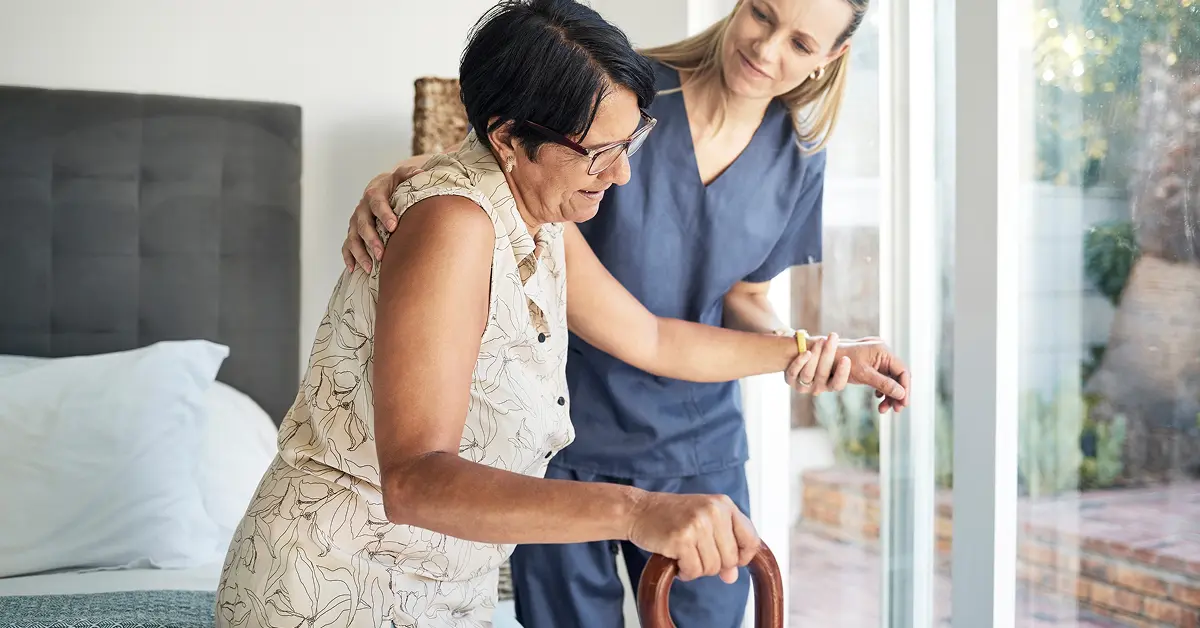Recovering at home after a hospital stay is a critical phase for many patients, especially the elderly, those with chronic illnesses, or individuals recovering from surgery. However, poor post-discharge care can often lead to hospital readmissions, which are not only physically and emotionally taxing but also financially burdensome—particularly in India, where healthcare costs are rising. With the right approach to patient care at home, most readmissions can be prevented.
Let’s explore how you can provide effective Best Caregiver Services at Home to ensure your loved one recovers safely and completely, minimizing the chances of returning to the hospital.
Why Hospital Readmissions Happen
Hospital readmission is defined as a patient being admitted again within 30 days of discharge. In India, common reasons for this include:
- Inadequate post-discharge care instructions
- Lack of follow-up with doctors
- Missed medications
- Poor nutrition or hydration
- Infections or wound complications
- Unmonitored chronic conditions (like diabetes or hypertension)
Often, families are overwhelmed or ill-equipped to manage the complex needs of patients at home, leading to avoidable health setbacks.
Importance of At-Home Patient Care
Home-based patient care offers several benefits:
- Comfortable environment: Patients often heal faster in familiar surroundings.
- Lower stress levels: Avoiding hospital noise and infections can speed recovery.
- Personalised care: Tailored care routines ensure individual needs are met.
- Reduced healthcare costs: Avoiding unnecessary readmissions can save lakhs in treatment expenses.
In India, many urban families are now hiring trained caregivers or nurses at home to bridge the gap between hospital discharge and full recovery.
Key Strategies to Prevent Hospital Readmissions at Home
Plan Ahead Before Discharge
Before your loved one is discharged from the hospital:
- Speak with the doctor about expected recovery time and potential risks.
- Get a clear, written care plan including medications, therapy, and follow-ups.
- Understand any red flags that require urgent attention.
Make sure you have all required medical supplies at home such as a walker, oxygen cylinder, or dressing kits.
Hire a Trained Caregiver or Nurse
In cases of surgery, chronic illness, or elderly patients, professional help at home can make all the difference. Caregivers can:
- Monitor vitals like blood pressure, sugar levels, and oxygen saturation.
- Help with daily tasks such as bathing, feeding, or mobility.
- Ensure medications are taken on time.
- Keep records for doctor consultations.
Strict Medication Management
One of the top causes of readmission is non-compliance with medications. To avoid this:
- Use pill organizers or mobile apps to track doses.
- Set alarms or reminders.
- Assign a caregiver or family member to oversee the schedule.
- Keep a list of all medications with dosage and timing visible in the patient’s room.
Monitor and Manage Symptoms
Don’t ignore symptoms assuming they’ll resolve on their own. Regularly monitor:
- Temperature, blood pressure, and sugar levels
- Signs of infection like fever or redness around wounds
- Breathing difficulties
- Swelling, pain, or changes in consciousness
Document any changes and inform the doctor if anything seems unusual.
Ensure Nutritional Support
Many recovering patients need special diets—low salt, high protein, diabetic-friendly, etc.
- Consult a dietician if needed.
- Prepare fresh meals at home based on dietary needs.
- Ensure enough fluid intake unless restricted by the doctor.
- Use nutritional supplements if prescribed.
Create a Safe Home Environment
Home safety is crucial to prevent falls or accidents:
- Clear clutter and wires from walking areas.
- Install grab bars in the bathroom.
- Use non-slip mats.
- Ensure adequate lighting, especially at night.
Regular Doctor Follow-ups and Teleconsults
Never miss a follow-up appointment. Use telemedicine services if mobility is a concern.
- Keep a checklist of questions to ask the doctor.
- Share any recent symptoms or changes in condition.
- Show records maintained at home to the physician.
Encourage Movement and Physiotherapy
Inactivity can lead to complications such as blood clots, pneumonia, or muscle loss.
- Encourage short walks (with support if needed).
- Start physiotherapy sessions for post-surgery rehab or stroke recovery.
- Do gentle leg and arm movements for bedridden patients to maintain circulation.
Provide Emotional and Mental Health Support
Patients may feel anxious, isolated, or depressed post-discharge. Offer:
- Companionship and reassurance
- Interaction with friends or family via video calls
- Access to counselors or therapists if needed
- Spiritual or religious engagement if it brings comfort
Emergency Preparedness
Despite all precautions, emergencies can happen. Keep these ready:
- Emergency contact numbers (doctor, ambulance, nearest hospital)
- Medical file or discharge summary
- Quick transport arrangements
- A pre-packed hospital bag if needed
Final Thoughts
Avoiding hospital readmissions is not just about medical treatment—it’s about holistic, attentive, and consistent care at home. For Indian families, this means balancing tradition with modern healthcare solutions like trained caregivers, telemedicine, and home monitoring tools.
By building a strong home care system, you protect your loved one’s health, comfort, and dignity—and significantly reduce the risk of returning to the hospital.
Need Help with In-Home Patient Care?
Consider professional services tailored for Indian families. From post-surgical care to elder support, trained caregivers can make recovery safer and smoother.
Contents
Our 24*7 services
Latest Posts
- What Is Respite Care and Why Is It Important
- Affordable home care for senior citizens in India
- Caring for Seniors with Dementia or Alzheimer's at Home
- Senior Caregiving A Guide for Every Family
- How to Write a Caregiver Resume That Gets You Hired
- How Care After Hospital Discharge Speeds Up Recovery at Home
- How to Get Home Health Care for Seniors Through Medicare
- What Does a Senior Citizen Caregiver Really Do at Home
- How to Care for Elderly Parents with Alzheimer’s or Dementia
- How to Get 24-Hour Care for Seniors at Home



